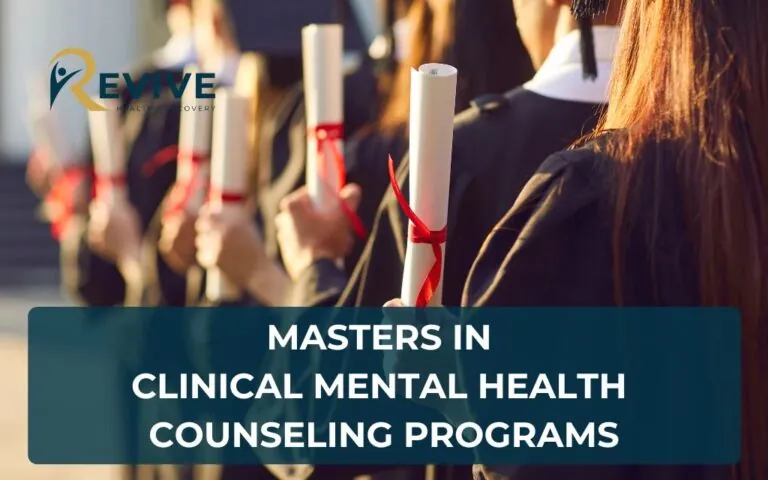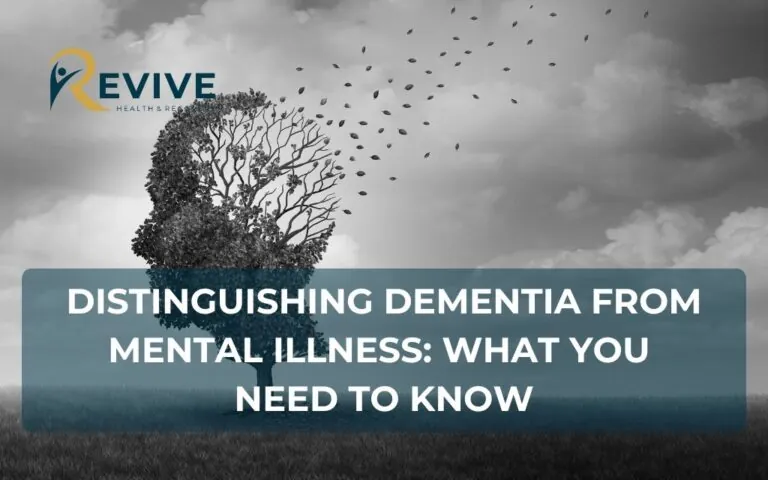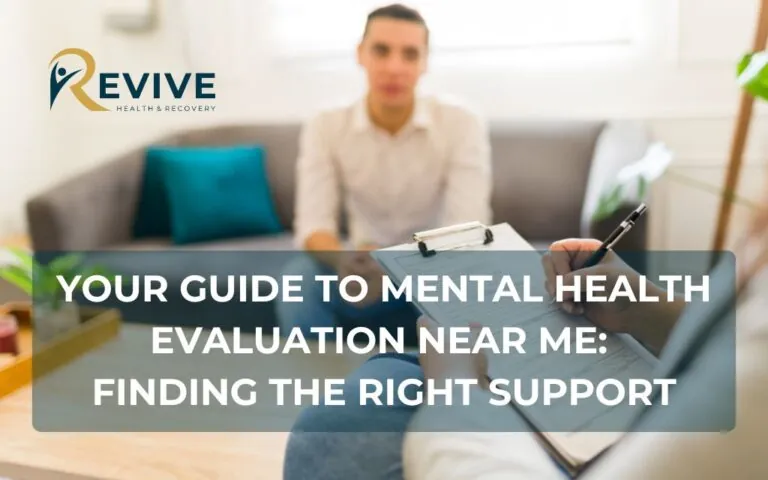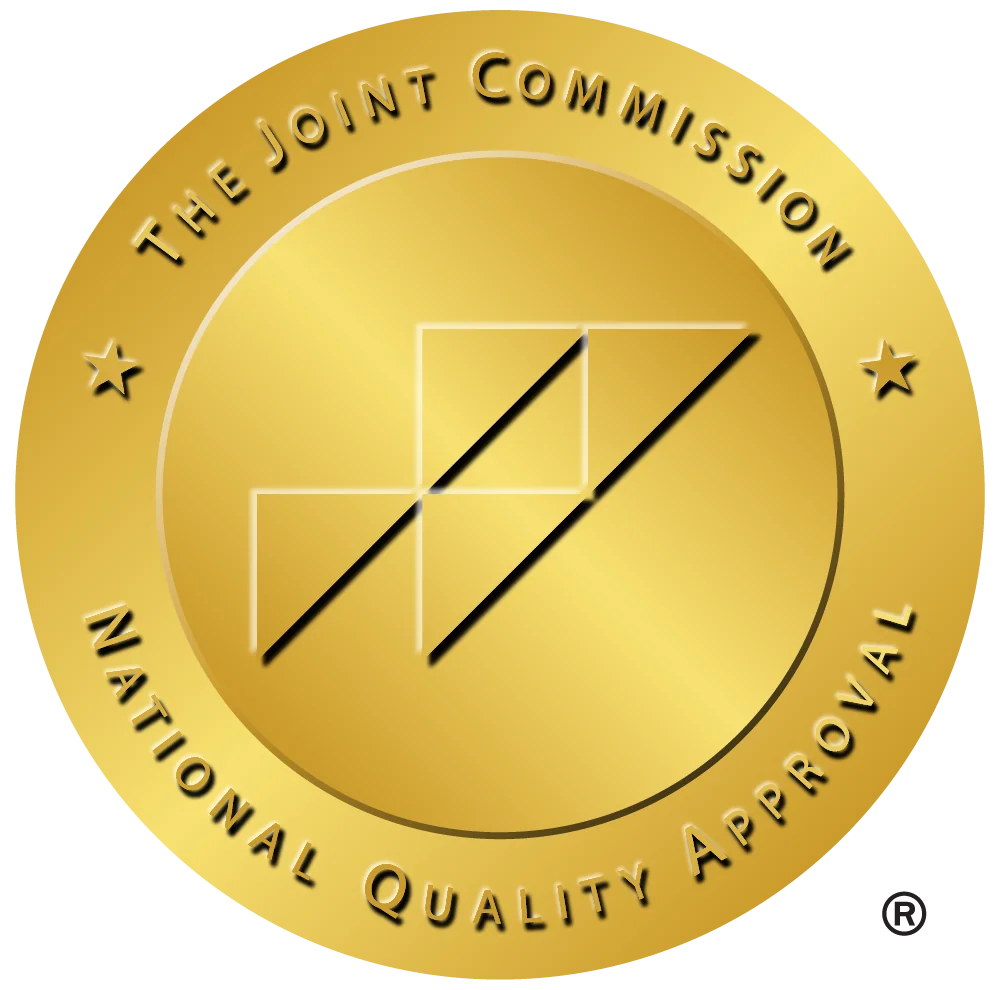
What is Mental Health Counseling & Why It’s Important?
Do you know about clinical mental health counseling? Let’s learn more about this topic with Revive Health Recovery.
About 1 in 5 U.S. adults – almost 50 million people – live with a mental illness, but sadly, over 27 million aren’t receiving any treatment. When mental health issues go untreated, they can affect not only how we feel and think but also our physical health, relationships, and work.
If you or someone you know is dealing with difficult emotions, thoughts, or behaviors, mental health counseling might help. Today, counseling is more accessible than ever, thanks to online resources and community support. You can find help through workplaces, schools, healthcare providers, community centers, or online platforms.
What is clinical mental health counseling?
Clinical mental health counseling includes services provided by trained professionals to help people manage challenges in their lives.
According to the American Psychological Association (APA), these challenges can be personal, emotional, behavioral, or related to relationships, careers, education, or life transitions. The APA explains that counseling services are offered by professionals like psychologists, licensed counselors, nurses, and social workers through government agencies, mental health centers, or social services. These services support individuals, families, and groups.
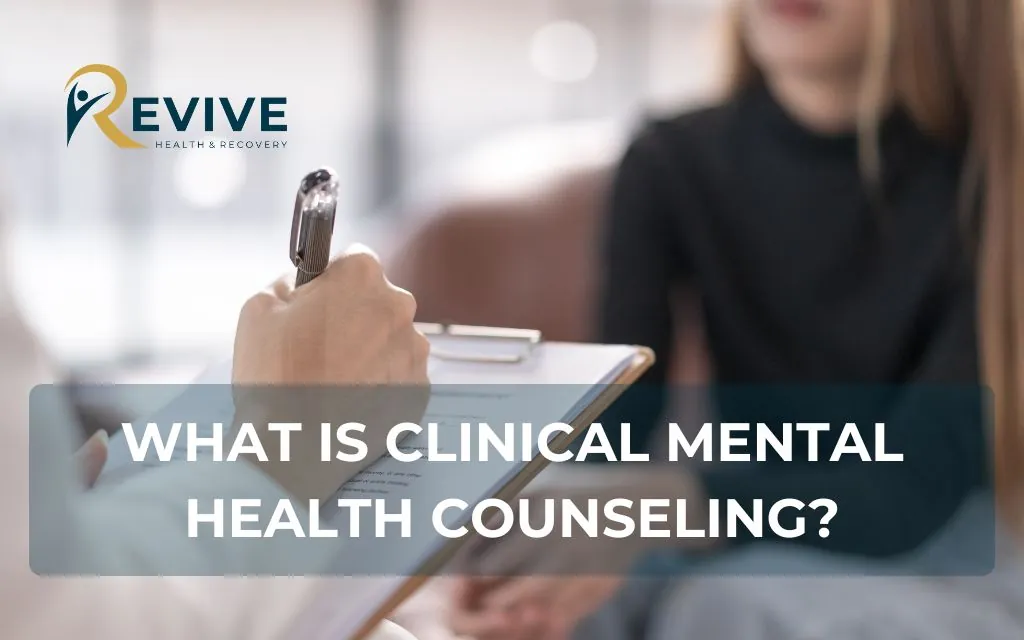
Certified clinical mental health counselors also have specialized training in areas like human sexuality, family and couples counseling, substance abuse and addiction, and support for trauma and abuse victims.
Types of mental health counseling
Mental health counseling focuses on diagnosing and improving emotional and behavioral well-being. It can be an alternative to medication or used alongside medications and other treatments.
Counselors may use different approaches based on the individual, group, or specific mental health condition, including:
- Psychotherapy
- Psychology
- Psychiatry
- Electrical current therapy
- Social work
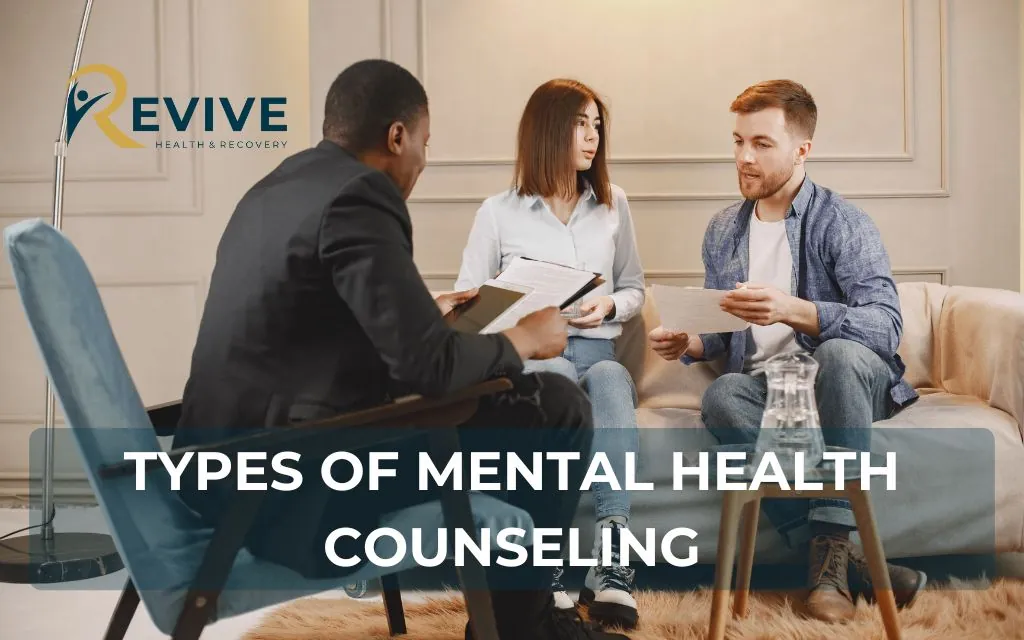
Psychotherapy
Psychotherapy, or talk therapy, involves a person, couple, family, or group meeting with a mental health provider to discuss their concerns. It helps people understand their emotions, thoughts, and behaviors and how these impact their lives. It also teaches new ways to manage stress and think differently about challenges.
Psychotherapy often includes psychoeducation, which helps people and their loved ones learn about their mental health condition, treatment options, and coping skills.
Psychology
Psychology is the scientific study of the mind and behavior, exploring how biological, environmental, and social factors shape people’s emotions, thoughts, and actions.
There are many areas of psychology, including:
- Abnormal psychology (psychopathology): Studies and treats unusual behaviors and mental disorders.
- Biopsychology: Examines how changes in the brain’s structure and patterns affect thoughts and behavior.
- Developmental psychology: Looks at how people grow and develop emotionally, mentally, and socially throughout life.
- Personality psychology: Focuses on personality traits and how a person’s unique characteristics shape their thoughts and behaviors.
Psychiatry
Psychiatry focuses on both the mental and physical sides of mental illness. Psychiatrists are medical doctors, so they can prescribe medications along with talk therapy if needed.
Psychiatric treatments may include:
- Antidepressants: Help boost brain chemicals that regulate mood.
- Mood stabilizers: Treat bipolar disorder and similar conditions.
- Stimulants: Often used for attention deficit hyperactivity disorder (ADHD) treatment.
- Sedatives: Slow brain activity to treat anxiety and sleep disorders.
- Antipsychotics: Manage symptoms of psychosis, a condition involving a break from reality.
Electrical current therapy
In cases of severe mental illness that don’t improve with talk therapy or medication, psychiatrists may use electroconvulsive therapy (ECT). In this noninvasive, painless procedure, a healthcare professional applies controlled electrical currents to the brain.
The person receiving ECT is given anesthesia and muscle relaxants to ensure comfort and reduce the risk of injury. Depending on the condition, this therapy can be done up to two or three times a week.
Social work
Social workers offer mental health counseling through individual, group, and family therapy. Based on their certification, they may also assess, diagnose, prevent, or treat mental health disorders and addictions.
Social workers can be found in private practices, primary care clinics, community mental health centers, hospitals, and treatment facilities.
What does a mental health counselor do?
Mental health counselors work with clients to set goals and create strategies to handle emotional challenges, strengthen coping and communication skills, boost self-esteem, encourage positive behavior changes, and improve mental well-being. The American Counseling Association (ACA) highlights that counseling is a collaborative process between the counselor and client.
The ACA describes different forms of clinical mental health counseling, including:
- Individual counseling: Focuses on personal issues like anxiety, anger, depression, or substance abuse.
- Family counseling: Addresses family structure, communication, parenting, major family changes, or sibling conflicts.
- Couples counseling: Helps with conflict resolution, setting realistic relationship goals, or managing aggressive behavior within a relationship.
- Group counseling: Brings together peers with common issues, such as low self-esteem, abuse, trauma, or substance use.
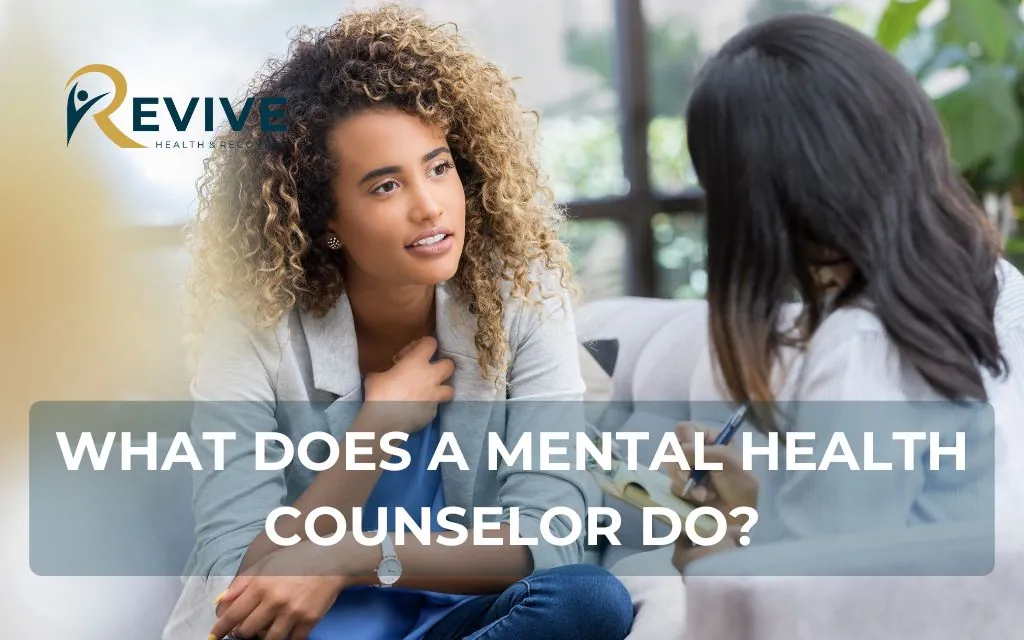
What are the benefits of mental health counseling?
Mental health counselors are essential in today’s busy, high-stress world. They help people understand their emotions, recognize behavior patterns, and tackle life’s challenges to support mental well-being.
Here are 5 main benefits:
- Gain insight into your thoughts and feelings
- Manage stress and anxiety
- Deal with challenging life changes
- Strengthen relationships
- Confidential, safe space to talk about anything on your mind
Gain insight into your thoughts and feelings
Mental health counselors offer a private, safe space where you can openly discuss your thoughts and feelings. This can be invaluable for understanding why you think or feel the way you do and for learning ways to handle challenging emotions.
Understanding and managing your emotions is key to leading a balanced, healthy life. When we understand our feelings, we can recognize unhealthy patterns and behaviors that may be affecting our mental health. With this awareness, we can make positive changes to improve our well-being.
Manage stress and anxiety
Mental health counselors can help people manage stress and anxiety, which greatly affect physical health. Stress can raise cortisol levels, leading to physical symptoms like headaches, fatigue, insomnia, and muscle tension, as well as psychological effects like mood swings, depression, and mental exhaustion. Prolonged stress can weaken the immune system, making illnesses more likely.
Anxiety is a normal emotion, but when it becomes constant or intense, it can lead to issues like panic attacks or more serious mental health conditions. Anxiety can cause physical symptoms such as a faster heart rate, shortness of breath, and stomach pain, and may also trigger feelings of paranoia or worry about the future.

Deal with challenging life changes
Counseling can be incredibly helpful when navigating life changes. Mental health counselors offer valuable insight and perspective on the challenges that accompany these transitions. Counseling also helps you better understand yourself, your values, and how to make choices that support your mental health and well-being.
Strengthen relationships
Mental health counselors can help people improve their relationships. In a safe, non-judgmental space, counselors guide individuals in exploring relationship dynamics. This may include spotting behavior patterns that create tension, uncovering motivations and beliefs, and learning how to communicate more effectively with others.
Confidential, safe space to talk about anything on your mind
Being able to talk in a private, safe space is essential because it lets us discuss tough topics without fear of judgment or consequences. In these settings, we can speak openly and honestly without worrying about how our words will be taken or used. This confidentiality is a key part of what mental health counselors provide.
What conditions can be helped through mental health counseling?
Mental health treatments vary from person to person since each individual has unique experiences and needs a personalized approach. For example, certain therapies may be effective for children with depression, while others support older adults coping with the loss of a loved one.
Mental health counseling can help manage a variety of conditions, including:
- Anxiety
- Addiction
- Borderline personality disorder (BPD)
- Depression
- Eating disorders
- Grief
- Obsessive-compulsive disorder (OCD)
- Mood disorders
- Panic disorder
- Phobias
- Post-traumatic stress disorder (PTSD)
- Social anxiety disorder
- Stress
- Relationship issues
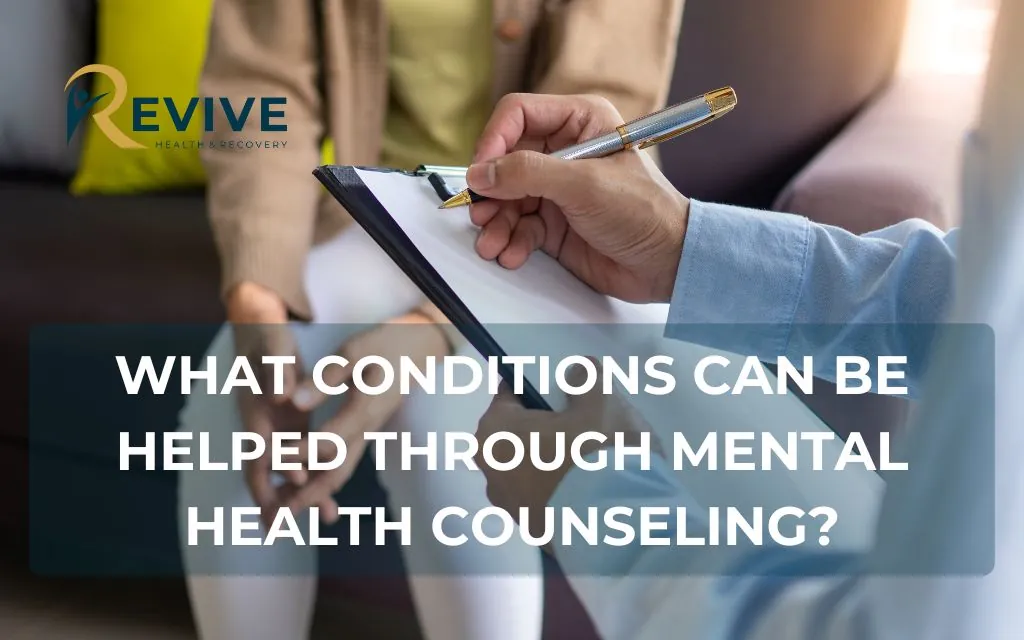
How can I get clinical mental health counseling near me?
There are several ways to find mental health counseling nearby. You can ask your primary care doctor for a referral, do an online search for local counselors, or use resources like:
- FindTreatment.gov
- Mental Health and Addiction Insurance Help from the U.S. Department of Health and Human Services.
- Opioid Treatment Program Directory from the Substance Abuse and Mental Health Services Administration (SAMHSA).
When choosing a counselor, consider the following:
- Cost and insurance coverage: How much do they charge? Will your insurance cover sessions? Do you need a referral from a primary care doctor or psychiatrist?
- Specialties: Do they focus on specific areas, like substance use or eating disorders?
- Telehealth options: Do they offer virtual appointments?
- Comfort level: Therapy works best with a strong therapist-client connection. Think about who you’d feel most comfortable with—maybe a certain gender, a person of color, or someone who shares your faith.
If you or someone you know is in crisis and needs immediate help, you’re not alone. Support is available:
- Call the National Suicide Prevention Lifeline, available 24/7, at 800-273-8255.
- Text HOME to the Crisis Text Line at 741741.
- Outside the U.S.? Find a helpline in your country through Befrienders Worldwide or the International Association for Suicide Prevention.
Can I use FSA for mental health counseling?
Your flexible spending account (FSA) or health savings account (HSA) can cover various mental health services and expenses, here are some examples:
- Mental health counseling
- Psychotherapy
- Behavioral health therapy
- Psychiatric care
- Medications prescribed by a psychiatrist or licensed healthcare provider
- Lodging for travel related to mental healthcare
- Transportation to mental health appointments
- Certain over-the-counter (OTC) items, like pain relievers
- Acupuncture
- Inpatient treatment
- Substance use disorder treatment
- Teletherapy
The Affordable Care Act requires most individual and small group health insurance plans, including those from the marketplace, to cover mental health services. However, even with insurance, mental health costs can still be high.
You can use your FSA or HSA to help lower these costs. But be sure to check which mental health expenses are eligible and what paperwork you’ll need for reimbursement.
Conclusion
Mental health counseling is essential for supporting the well-being of millions facing mental health challenges. With various approaches and trained professionals, counseling offers a safe, private space to explore thoughts, manage stress, and cope with life’s ups and downs.
Whether dealing with anxiety, relationship issues, or big life changes, mental health counseling provides valuable support. Today, it’s easier than ever to find help through online resources and community centers. If you or someone you know needs support, consider reaching out to a counselor to start the journey toward a healthier, more balanced life.

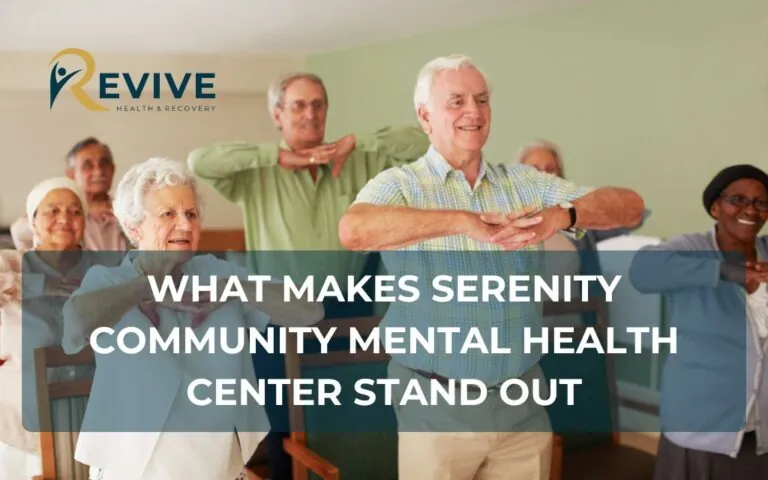




5 Reasons Why You Should Choose Revive Health Recovery to Care for Your Mental Health
7 minutes


